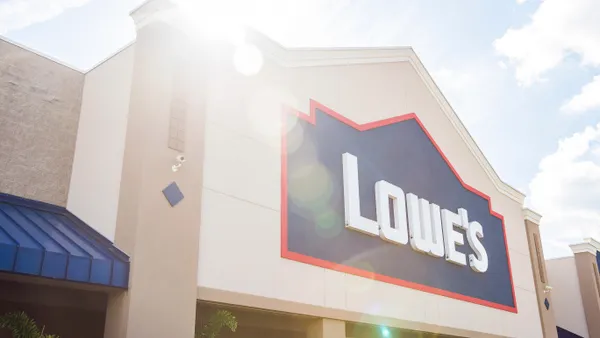Dive Brief:
- Companies that see supply chain as a cost center or supporting team are leaving value on the table, according to research released by Accenture at the Gartner Supply Chain Executive Conference.
- The survey of 900 executives found CTOs and CIOs are still seen as the top stakeholders — 48% and 40%, respectively — in leading digital transformation, compared to other C-suite officers. Only 34% of respondents named the COO a primary stakeholder, as an example.
- Despite this, the survey executives are investing equally across technologies that benefit different supply chain functions. Order management was the top function to benefit from new investment (25%), but the lowest average (transportation at 19%) was not too far below.
Dive Insight:
Accenture sees these results as indicative of a lost opportunity, considering the value supply chain executives can add to digital transformation strategy.
"Just like the digital natives do, traditional large companies can use their supply chains as a way to innovate, competitively differentiate and drive additional sources of revenue," Mo Hajibashi, managing director at Accenture, told Supply Chain Dive in an e-mail. "Think profitable last mile delivery, customized supply chain services and ecosystem partnerships that provide new channels to customers."
But the two main findings of the survey — a lack of engagement by non-technology focused C-suite members and equal investment across portfolios — show in most industries, transformation is still focused on technology, not strategic implementation.
The retail and consumer goods industries are the odd ones out. Respondents in these sectors identified higher engagement from the CEO, CFO and COO, given their consumer-facing nature. COOs, in particular, are beginning to be seen as "architects" of end-to-end implementation, according to the report.
"Consumer goods companies are starting to transform away from multi-divisional businesses, and needing to get more locally focused and closer to consumers," Hajibashi said, "So they also need the COO to look across the seams (of the company)."
The trend underscores the importance of supply chain in this function for Hajibashi.
When investments are driven by technology adoption, rather than strategic implementation, they have less impact, he said. "The supply chain needs to be a competitive differentiator to drive growth, and for that to happen the investments need to be aligned to the business strategy and supported by the CEO and CFO," Hajibashi said.














